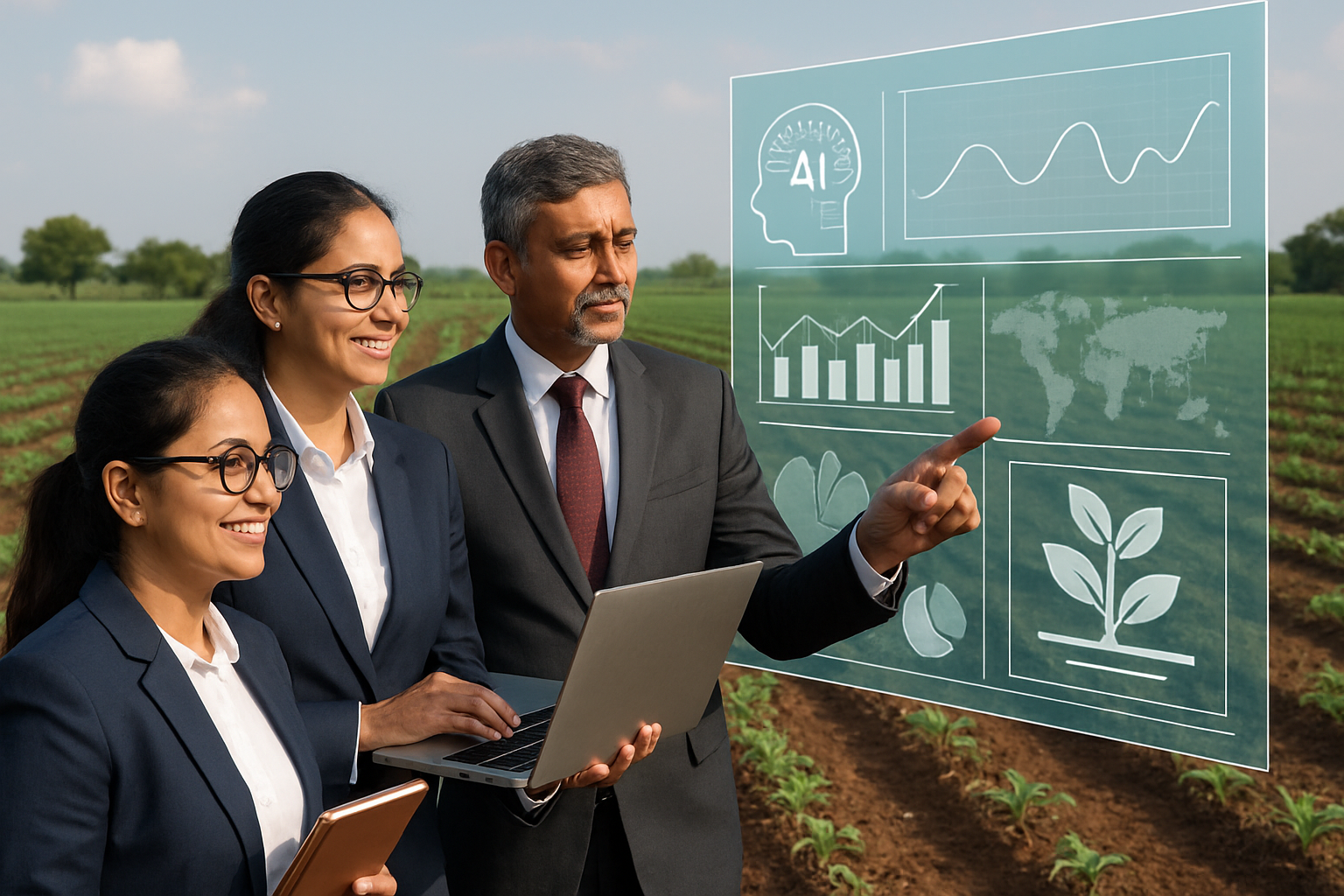Quick Take
- PM-KISAN scheme boosts annual farmer support from ₹6,000 to ₹10,000 starting April 2025
- Over 60% of new Indian agri-tech startups now focus on sustainable farming solutions
- Government launches AI-driven soil health mapping across major agricultural regions
- Regional processing hubs in Punjab, Maharashtra, Andhra Pradesh target crop loss reduction
- Blockchain traceability systems enhance export competitiveness and combat food fraud
India’s farming sector is experiencing its biggest shake-up in decades. The government has announced a massive 67% jump in direct income support for farmers while triggering an unprecedented wave of sustainable agriculture innovation.
The Ministry of Agriculture & Farmers Welfare revealed expanded policies taking effect in April 2025. Annual direct income support will climb to ₹10,000 per eligible farmer — a move that creates significant business opportunities across India’s rapidly changing agricultural landscape.
The beefed-up PM-KISAN scheme marks the largest income support increase since the program launched. Officials say it directly tackles rural economic stress while pumping up purchasing power in farming communities. The policy shift comes as India’s agriculture undergoes fundamental changes through sweeping reforms targeting both farmer welfare and environmental goals.
“The Soil Health Digital Revolution initiative introduces AI-driven soil sensors and digital mapping across farming regions,” according to government announcements. This program addresses widespread soil problems while pushing data-driven farming that cuts fertilizer waste and reduces environmental damage.
Technology Integration Reshapes Farming Operations
Regional agro-processing hubs have launched in three major farming states, focusing on cutting post-harvest losses through better infrastructure and local value creation. These facilities tackle a major problem where farmers traditionally lose significant crop value between harvest and market.
AI-based advisory platforms are becoming more accessible to small farmers. They provide real-time guidance on crop choices, soil monitoring, and irrigation optimization. Mobile interfaces ensure the technology reaches resource-stretched farming communities that were previously shut out from advanced agricultural tools.
Satellite precision agriculture lets farmers track land health through real-time vegetation monitoring and soil moisture analysis. This tech evolution makes advanced farming tools available to smaller producers — leveling the field with large agricultural operations.
Blockchain Systems Drive Export Competitiveness
Blockchain traceability systems are addressing food fraud concerns while boosting export competitiveness across agricultural products. The technology tracks produce from farm to consumer, creating premium pricing opportunities and strengthening India’s agricultural export reputation globally.
Revamped crop insurance schemes now use AI and remote sensing for faster claim settlements. This gives farmers better protection against climate losses. The upgraded system creates a stronger safety net for agricultural investments and risk management.
Sustainable Agri-Tech Startup Boom
Over 60% of new agri-tech startups in India focus on sustainable farming solutions. This reflects growing consumer awareness about climate change and environmental responsibility. The trend creates substantial market opportunities for companies developing eco-friendly agricultural technologies.
Climate-resilient crop varieties help farmers maintain steady yields despite resource constraints and weather uncertainty. Research institutions are developing drought-tolerant pulses and pest-resistant cereals to improve national food security while cutting input costs for producers.
The organic farming movement is gaining steam through government incentives and market premiums that encourage farmers to switch to certified organic practices. Digital platforms bridge information gaps between producers and markets, enabling nationwide price discovery and transparent bidding.
Strategic Market Opportunities Emerge
Supply chain improvements emphasize IoT-enabled storage facilities designed to reduce post-harvest losses while increasing income for farmers. These technological improvements address major inefficiencies in India’s agricultural value chain that have historically hurt farmer profits.
Companies can capitalize on sustainable agriculture trends through strategic investments in agri-tech solutions that prioritize environmental responsibility. Partnerships with innovative agricultural startups offer opportunities to access emerging technologies and expanding market segments across rural India.
Diversifying product lines to include organic options helps businesses meet growing consumer demand for chemical-free food products. The market shift toward green technologies creates substantial opportunities for forward-thinking companies willing to adapt their operations to sustainability standards.
Long-Term Business Transformation
The agricultural transformation extends beyond traditional farming into comprehensive technology integration that improves efficiency, sustainability, and profitability across the entire value chain. Government-backed applications and private platforms create transparent market mechanisms that benefit both producers and consumers.
For businesses seeking alignment with these trends, collaboration among agricultural ecosystem stakeholders becomes essential for success. The convergence of policy reforms, technology adoption, and sustainability efforts creates fertile ground for innovation and market expansion across India’s agricultural sector.
This transformation represents more than technological advancement — it signals a fundamental shift toward practices that benefit both environmental sustainability and business competitiveness. Companies embracing sustainable agriculture practices can fulfill growing consumer demand while meeting corporate social responsibility expectations in India’s rapidly evolving agricultural landscape.






